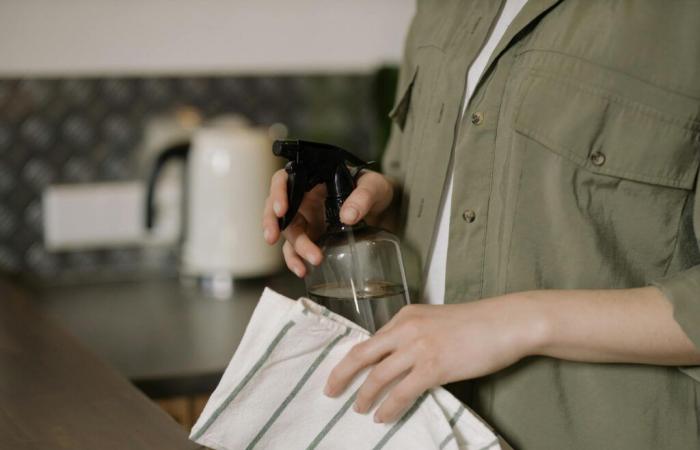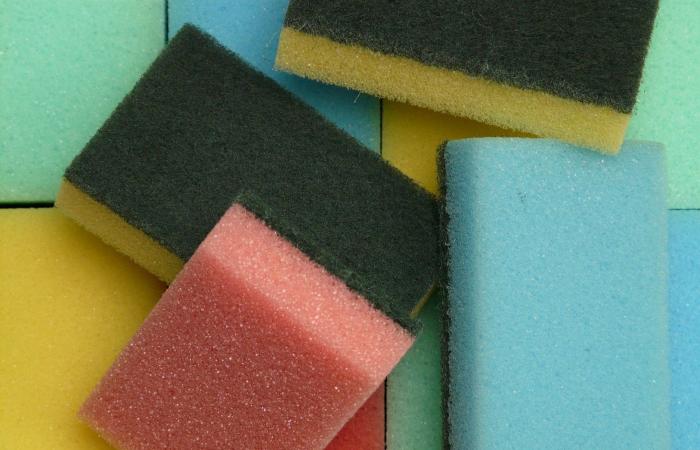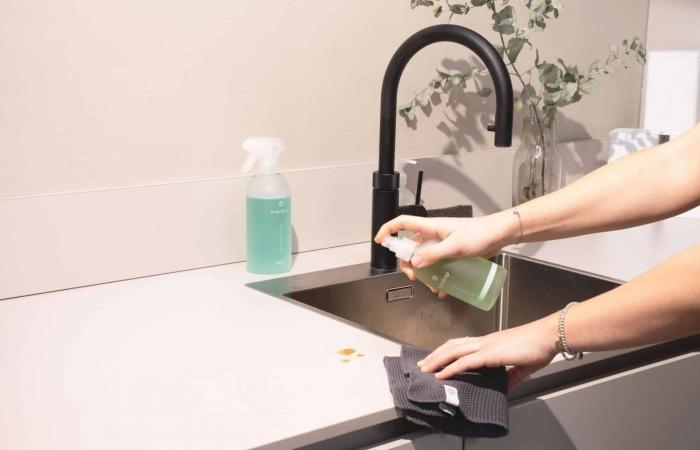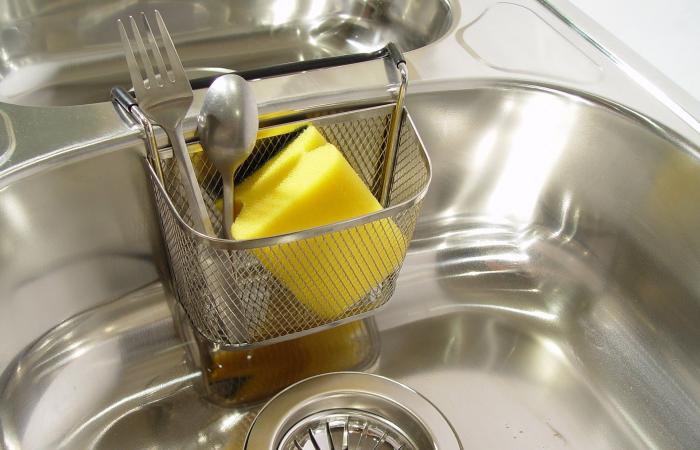When we think of places in the house that are teeming with bacteria, the bathroom or toilet often comes to mind. But you might be surprised to learn that one of the worst bacteria breeding grounds is in your kitchen: it’s simply your sink. Although the sink is used to clean dishes, fruits and vegetables, and even hands, it is often forgotten during daily cleanings, making it an ideal place for bacteria to grow.
Why is the sink a breeding ground for bacteria?
Food scraps and moisture
- The kitchen sink is regularly in contact with leftover foodgreasy residue, and other debris that accumulate over time. These residues quickly become sources of food for bacteriapromoting their proliferation.
- The sink is also a place constantly humidwhich creates an environment conducive to the development of bacteria. Lingering moisture combined with food residue makes the sink a prime location for germs like salmonellal’E. coliand other potentially dangerous bacteria.
Sponges and rags
- THE sponges and the rags used to clean the sink are often left wet after use, which also encourages bacteria growth. Sponges can quickly become reservoirs of bacteria if they are not disinfected regularly. When you use a contaminated sponge to wipe down the sink, you’re just spreading bacteria.
What health risks?
A poorly maintained sink can have several health risks of the whole family. Bacteria present in the sink can contaminate dishes, utensils, and even food that comes into contact with it.


Olive trees, symbols of the Mediterranean and the sun, are trees that fascinate with their resilience and beauty. However, when winter knocks on our door with its negative temperatures…Read more
Cross contamination
- The risk of cross contamination is one of the main dangers associated with a dirty sink. For example, if you wash raw meat in the sink, bacteria can settle on the surface of the sink and remain present even after a simple rinse.
- If you then put vegetables or fruit in the sink without washing them properly, they may be contaminated by these bacteria. This can lead to food poisoning and other health problems, especially for vulnerable people such as children, the elderly, and people with weakened immune systems.


Common bacteria
- Among the bacteria most often found in the kitchen sink, we find salmonellal’E. coliand the staphylococcus aureus. These bacteria can cause severe digestive problems, such as diarrhea, vomiting, and abdominal cramps.
- Yeast and mold can also grow in the sink, especially when humidity remains constant. These organisms can cause allergic reactions and worsen existing respiratory problems.
How to clean your sink effectively?
To prevent your sink from becoming a bacteria nestit is essential to clean it regularly and correctly. Here are some simple tips to keep your sink clean and healthy.
Daily cleaning
- Rinse the sink after each use to remove leftover food and residues. Use a brush or a clean sponge to clean the walls of the sink and remove encrusted dirt.
- After rinsing the sink, dry it with a clean cloth to prevent humidity from promoting the growth of bacteria.
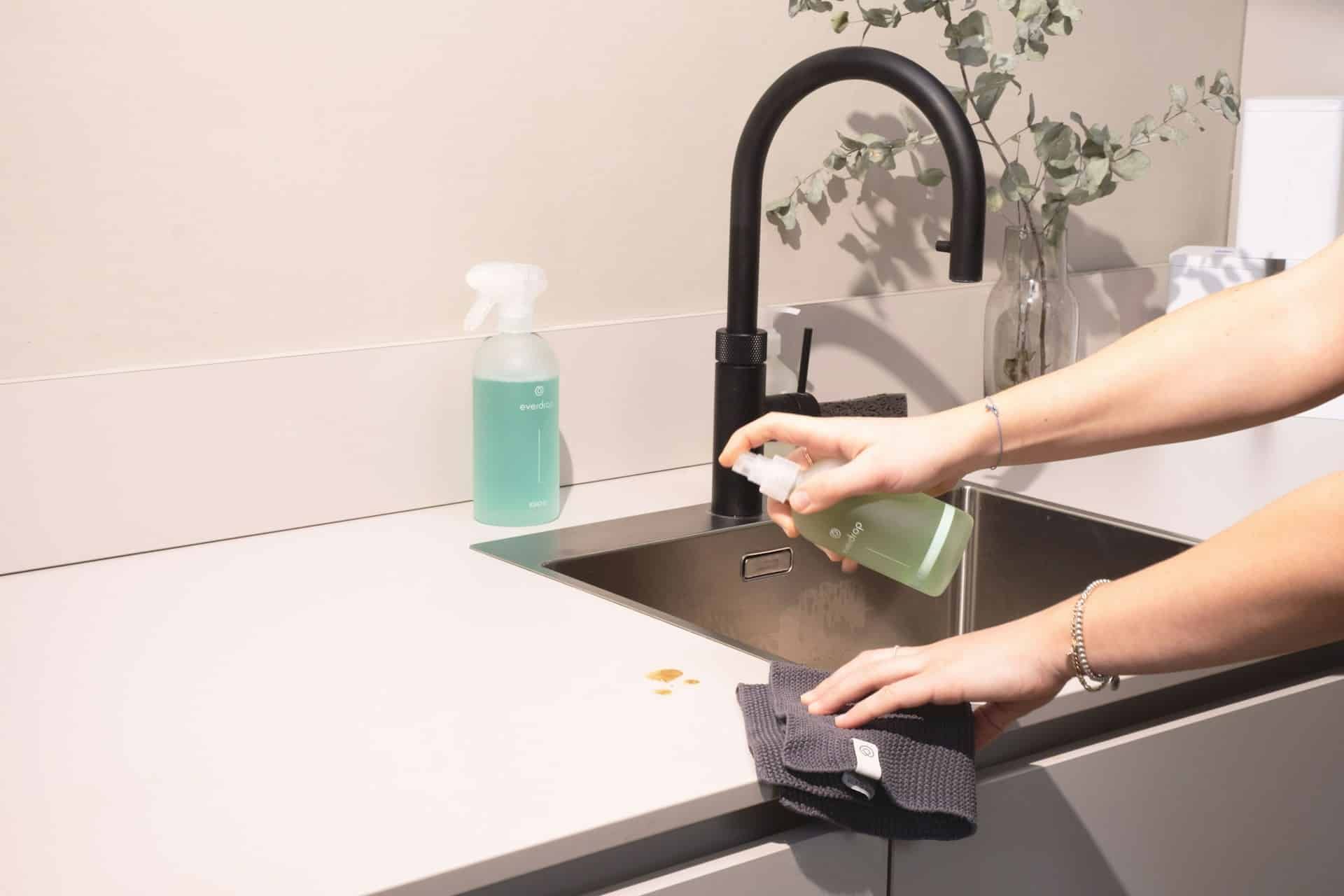

Weekly disinfection
- Once a week, disinfect the sink with a solution composed ofhot water and of white vinegar or from baking soda. Vinegar and bicarbonate are natural disinfectants that allow you to kill bacteria without the use of harsh chemicals.
- You can also usediluted bleach for a thorough cleaning, especially if you have handled raw meats. Be sure to rinse the sink thoroughly after using bleach.
Maintenance of sponges and cloths
- THE sponges must be disinfected regularly. You can place them in the microwave for 1 to 2 minutes (moistening them first) to kill bacteria. Make sure not to microwave if the sponge contains metal parts.
- THE rags should be changed regularly and machine washed at high temperatures to prevent the proliferation of germs.
Tips to prevent the proliferation of bacteria
Use protective grilles
- Install a protective grid at the bottom of the sink to prevent food from remaining in direct contact with the surface of the sink. This helps minimize residue buildup and makes cleaning easier.
Wash fruits and vegetables immediately
- Avoid leaving fruits and vegetables in the sink, especially after handling raw meat. Wash them immediately and place them on a clean surface to avoid any risk of contamination.
Keep drains clean
- Don’t forget to also clean the siphon from the sink. The latter can accumulate food residue and become a real breeding ground for bacteria. Unscrew the siphon and clean it regularly to avoid bad odors and bacteria.
The sink is an essential element of the kitchen, but it can quickly become a real nest of bacteria if not properly maintained. To avoid the risks of cross contamination and preserve the health of your family, it is essential to regularly clean and disinfect the sink, as well as its associated accessories, such as sponges and rags.
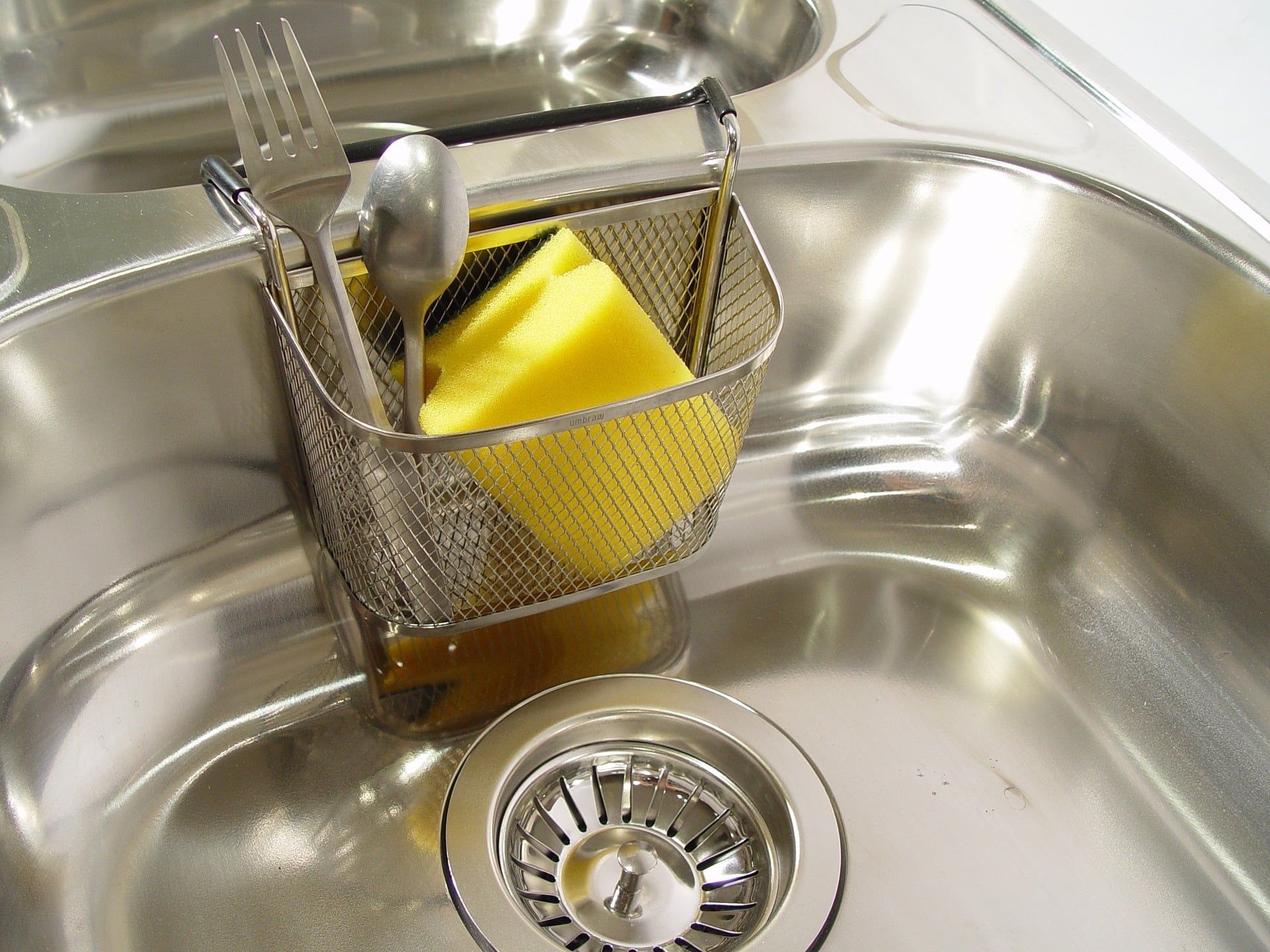

By taking care of your sink and adopting simple daily actions, you can transform this place into a clean and healthy space, thus preventing it from becoming a source of health problems. So, the next time you clean your kitchen, don’t neglect the sink: a little effort is enough to avoid big problems!
Belgium

